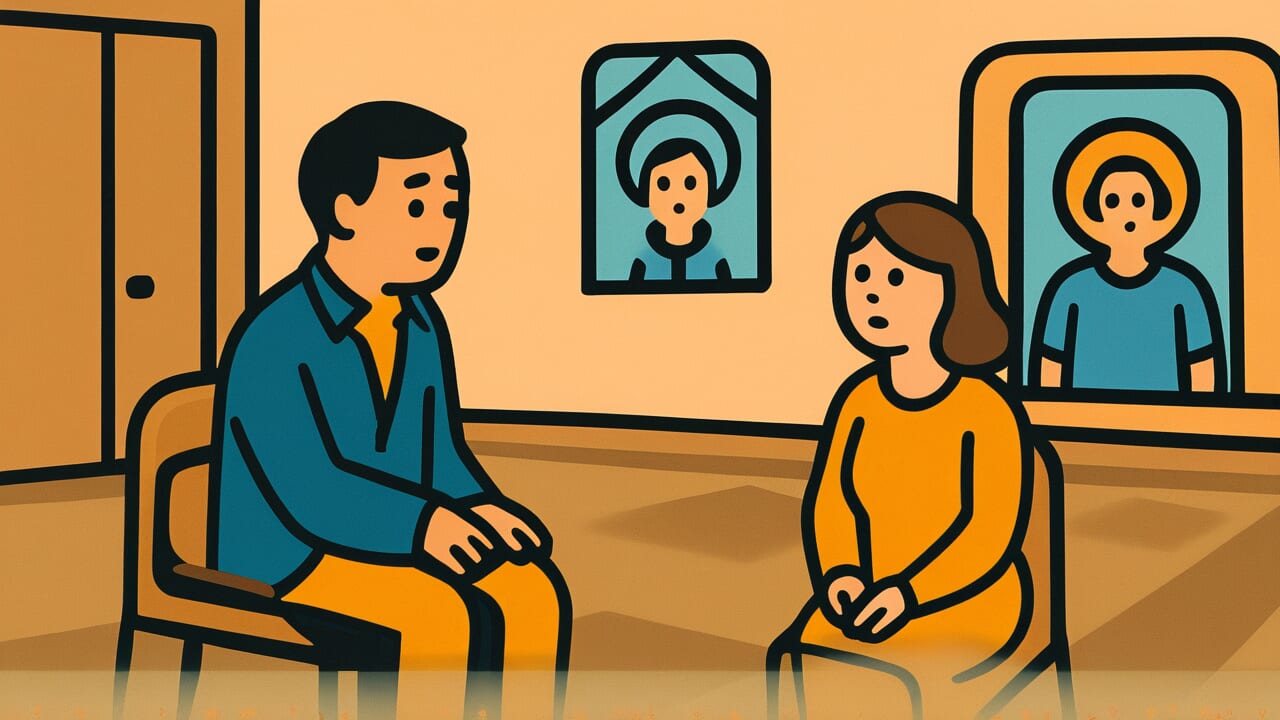How to Read “Dying before your parents is unfilial”
おやにさきだつはふこう
Meaning of “Dying before your parents is unfilial”
This proverb means that when a child dies before their parents, it is the ultimate act of unfiliality. Parents give birth to their children, raise them, and find great joy in watching them grow.
When a child leaves this world before their parents, it brings the deepest sorrow to the parents. It goes against the natural order of life.
This proverb is used when young people are about to do something reckless or treat their lives carelessly. By saying “Dying before your parents is unfilial,” people remind them that their life is not theirs alone.
It carries the love and expectations of their parents, making it precious beyond measure.
Even today, people use this saying when warning against dangerous behavior or encouraging others to take care of their health. It also expresses the regret and parental grief when someone dies young from illness or accident.
Origin and Etymology
The exact origin of this proverb is unclear. However, it likely emerged from traditional Japanese views on parent-child relationships, which were strongly influenced by Confucian thought.
Confucianism considers filial piety one of the most important virtues. Respecting and caring for parents has been seen as the most fundamental human morality.
The ancient Chinese text “Classic of Filial Piety” teaches that not worrying parents and meeting their expectations is true filial piety. Among these teachings, dying before one’s parents was considered the greatest act of unfiliality.
During the Edo period in Japan, Confucianism spread widely. Filial piety became an important value not only among samurai but also among common people.
Parents give birth to children and endure many hardships to raise them to adulthood. Repaying this debt of gratitude is the child’s duty. The idea that nothing is more painful for parents than seeing their child’s dead face became shared throughout society.
This proverb expresses not just the order of death, but the depth of parental love and the child’s desire to reciprocate it. It has long been etched in Japanese hearts.
It conveys the preciousness of life and the weight of parent-child bonds through simple words. This is true wisdom.
Usage Examples
- When I heard my son was riding his motorcycle dangerously, I scolded him harshly, saying “Dying before your parents is unfilial”
- I was reckless in my youth, but remembering that dying before your parents is unfilial, I now take care of my health
Universal Wisdom
The proverb “Dying before your parents is unfilial” contains a profound truth. Human life does not exist in isolation. It gains meaning through countless relationships.
We tend to think our life belongs only to ourselves. But in reality, behind every life are people who nurtured it, protected it, and continued to hope for it.
For parents especially, their child’s existence holds meaning as great as their own life. Their greatest wish is for their child to grow up safely and live happily.
This proverb has been passed down through generations because it expresses humanity’s instinctive understanding of connection. In any era, parents think of their children, and children wish to meet their parents’ expectations.
This mutual love has supported the foundation of human society.
This proverb also teaches us the weight of life. When one life is lost, it is not just that person’s problem. It brings deep sorrow to those who love them.
Therefore, valuing your own life is also an act of consideration for others. This universal wisdom never fades, no matter how times change.
When AI Hears This
From a biological perspective, the death of a young individual is the greatest loss for a species. A 20-year-old human can produce offspring for decades to come, while a 60-year-old parent has almost no reproductive potential left.
Reproductive value theory quantifies this “remaining reproductive opportunity.” In nature’s logic, parents dying first is extremely rational. A child dying first is a waste of genes.
Yet humans created a value system that directly contradicts this biological efficiency. That is the idea that “Dying before your parents is unfilial.” This is remarkable.
Lions and elephants grieve when their young die, but they don’t call it “unfilial.” Only humans reversed the relationship between biological loss and moral wrongness.
This reversal has deep meaning. In human society, the knowledge and social networks accumulated by parents can be more valuable than young people’s reproductive ability.
Agricultural techniques, craftsman skills, ability to mediate human relationships—these are transmitted as culture, not genes. We remeasured the value of elderly people living on a scale separate from biological reproductive capacity.
In other words, this proverb is evidence that humans rewrote their instincts.
Lessons for Today
What this proverb teaches modern people is that our lives carry the hopes and expectations of many others. Modern society emphasizes individualism. The value that you decide your own life is certainly important.
But at the same time, we never live alone.
Your living healthily today and continuing to hold hope for tomorrow is not just for yourself. It is also for those who love you.
Avoiding reckless challenges and dangerous behavior, taking care of your physical and mental health—these are not cowardly acts. They are acts of consideration for those who care about you.
I especially want young people to feel the weight of their own lives. When facing difficult situations or feeling desperate, remember the faces of those who supported you.
Your life is not yours alone. It is an irreplaceable treasure into which much love has been poured.



Comments